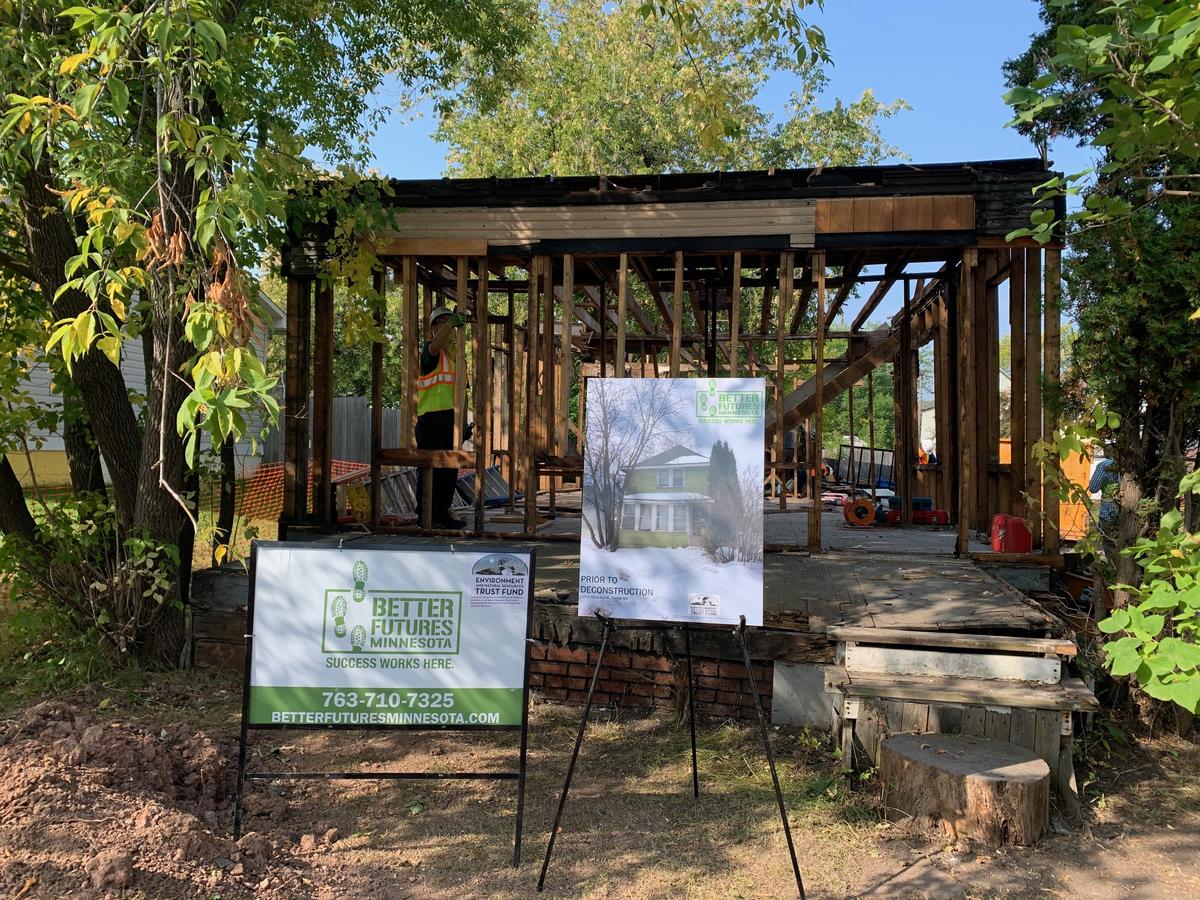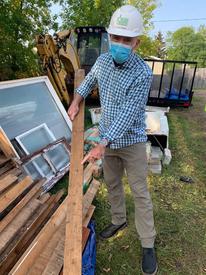Identifying the valuable materials in old homes has become second nature to Steve Thomas, founder of Better Futures Minnesota, a social enterprise out of Minneapolis. He’s been doing it for 10 years now.
“You see this wood? It was harvested in 1906. The grain on it is so tight. It’s beautiful,” he gushed excitedly. “There’s a gold mine in this house. People will buy this up like crazy.”
The wood was being carefully dismantled from one of three old houses in West Duluth that have been targeted for deconstruction by St. Louis County. The work crew is a team of specially trained men, recently released from incarceration, who are learning job skills and turning their lives around. The materials are sold to the public as close to the site as possible, or at the Better Futures Reuse Warehouse in Minneapolis.
NRRI Materials Scientist Victor Krause has been working with this organization since 2015 to help them get the most value from the resources.
“Many people don’t realize that the amount of waste generated from construction and demolition is increasing at an alarming rate – nearly as much now as municipal solid waste,” Krause explained. “Landfills that aren’t designed to contain these materials are finding it difficult to keep hazardous compounds away from groundwater sources.”
A study by Ecotone Analytics found that a reusing and recycling a typical deconstructed house versus demolition and landfilling can off-set of about 116 tons of carbon.
NRRI Wood Shop Supervisor Scott Johnson made a wood species display to help the work crews identify wood and is developing how-to manuals to upcycle the materials and make the deconstruction site more efficient.
The St. Louis County deconstruction projects are funded by the Environmental Natural Resources Trust Fund as recommended by the Legislative-Citizen Commission for Minnesota Resources. The goal is to remove the tax-forfeited homes and make the land available for new construction, returning the property to the tax rolls and divert up to 85 percent of the materials from landfills.
Projects that NRRI has worked on with Better Futures include:
- Development of bench and table designs to upscale old Douglas fir materials & new outdoor chair design to make out of other recycled wood
- Test recycling opportunities of old books
- Process development for recycling the copper in old compressor motors
- Ecotone Analytics partnership to calculate the greenhouse gas emissions being diverted by the deconstruction process.
- Identify potential harmful effects from landfilled materials leaching and entering the environment.
- Assist deconstruction process improvements
- Design improved production jigs for plexiglass dividers to meet requirements for local school

